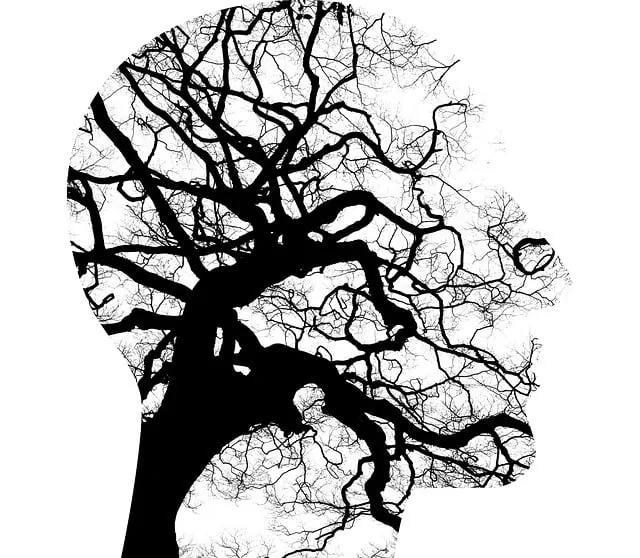Kaiser Littleton employs a strategic evaluation process for its mental wellness programs, encompassing design, implementation, and participant outcomes. Using surveys, interviews, and data analysis, they measure program effectiveness, such as Stress Management and Burnout Prevention, to refine services and identify best practices. Accessing mental health services through Kaiser Littleton is straightforward: individuals verify in-network status with insurance, receive a referral from their primary care physician, and engage in evidence-based treatments tailored to their needs. The evaluation process guides continuous improvement, ensuring the organization offers relevant, responsive, and accessible mental health resources.
“Uncovering Effective Mental Wellness Programs: A Comprehensive Guide
Mental wellness is a vital aspect of overall well-being, and evaluating programs designed to support it is essential. This article explores the process of assessing mental health initiatives, focusing on Kaiser Littleton’s services as a case study. We’ll delve into understanding evaluation frameworks, navigating eligibility for their programs, and discovering common techniques like surveys and interviews used to gauge impact. Additionally, we’ll highlight how continuous improvement cycles can enhance mental health care based on evaluation data.”
- Understanding Mental Wellness Program Evaluation: A Framework for Effectiveness
- Accessing Kaiser Littleton's Services: Eligibility and Referral Process
- Common Evaluation Methods: Tools and Techniques for Measuring Impact
- Continuous Improvement: Using Evaluation Data to Enhance Mental Health Care
Understanding Mental Wellness Program Evaluation: A Framework for Effectiveness

Mental wellness program evaluation is a structured process that measures the effectiveness, quality, and impact of mental health interventions. It involves assessing various aspects of a program, including its design, implementation, outcomes, and participant experiences, to ensure it aligns with established goals and standards. This framework guides organizations like Kaiser Littleton in optimizing their mental health services, ensuring they meet the evolving needs of their community.
By employing comprehensive evaluation methods, Kaiser Littleton can understand how its programs, such as those focused on Stress Management and Burnout Prevention, influence participants’ well-being. These evaluations may include surveys, interviews, and data analysis to assess changes in symptoms, attitudes, and behaviors related to mental health. Such insights are vital for refining programs, identifying best practices, and demonstrating the value of their mental wellness initiatives, ultimately enhancing access to effective services like how to get mental health services through Kaiser Littleton.
Accessing Kaiser Littleton's Services: Eligibility and Referral Process

Accessing Kaiser Littleton’s mental health services is a straightforward process designed to ensure individuals receive the support they need. To get started, individuals should check their insurance coverage to confirm Kaiser Littleton is in-network with their plan. Once eligible, clients can reach out to their primary care physician for a referral, which is often the first step in navigating their mental wellness journey. The referral process streamlines access to specialized services like therapy, counseling, and mood management programs tailored to individual needs.
Kaiser Littleton prioritizes inclusive care, aiming to reduce the mental illness stigma through various efforts. They offer a range of services addressing diverse concerns, from promoting positive thinking to managing complex conditions. Whether someone is seeking support for anxiety, depression, or other mental health challenges, the referral process provides a clear path to accessing evidence-based treatments and resources within Kaiser Littleton’s comprehensive care framework.
Common Evaluation Methods: Tools and Techniques for Measuring Impact

When evaluating mental wellness programs, several common methods and tools are employed to measure their impact effectively. These include surveys and questionnaires designed to gauge participants’ perceptions of their mental health improvements. For instance, the Patient Health Questionnaire (PHQ-9) is a widely used tool for assessing depressive symptoms, while the General Anxiety Disorder 7-Item Scale (GAD-7) evaluates anxiety levels. These structured assessments provide quantitative data on changes in mental health status.
Additionally, qualitative methods such as interviews and focus groups offer deeper insights into participants’ experiences. Through open-ended questions, these techniques explore individuals’ perceptions of the program’s effectiveness, including how it helped them manage their mental illnesses. At Kaiser Littleton, for instance, services often incorporate Empathy Building Strategies and Mental Wellness Journaling Exercise Guidance to foster personal growth and self-reflection. Furthermore, programs targeting Mental Illness Stigma Reduction Efforts use interactive workshops and community discussions to create a more supportive environment, as recognized by many mental health professionals.
Continuous Improvement: Using Evaluation Data to Enhance Mental Health Care

Evaluating mental wellness programs is an iterative process that facilitates continuous improvement in mental health care services, such as those offered by Kaiser Littleton. By analyzing program data, service providers can identify strengths and weaknesses, leading to informed decisions on how to enhance their offerings. This data-driven approach allows for the adaptation of strategies, ensuring that mental health interventions remain effective and tailored to the evolving needs of the community.
For example, an evaluation might reveal a need for additional resilience-building techniques within a particular program. Armed with this insight, Kaiser Littleton could introduce new workshops or counseling methods focused on emotional well-being promotion, thereby enriching their mental health services. Such continuous refinement contributes to a more robust and responsive mental wellness ecosystem.
Mental wellness program evaluation is a multifaceted process that holds the key to enhancing and optimizing care within mental health services, such as those offered by Kaiser Littleton. By employing various tools and techniques, as outlined in this article, organizations can effectively measure the impact of their programs. Understanding eligibility criteria, like those for accessing Kaiser Littleton’s services, is the first step. Through continuous improvement cycles powered by evaluation data, mental health care can be tailored to meet individual needs, ultimately fostering better outcomes. For those seeking mental health support through Kaiser Littleton, these evaluation methods ensure that resources are directed where they’re most needed and effective.






